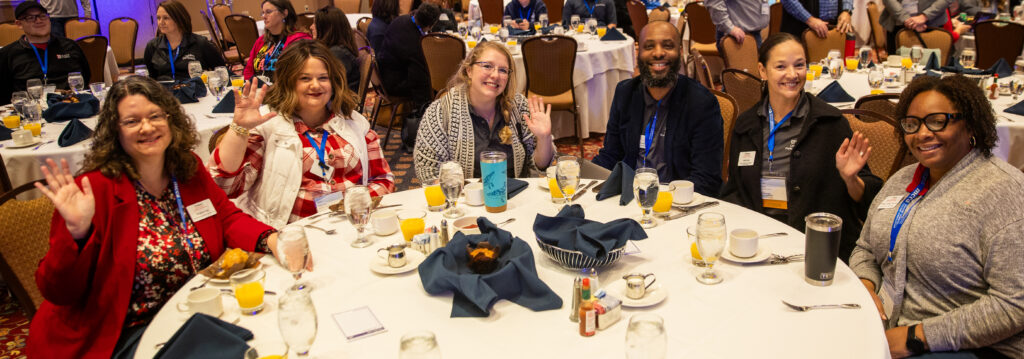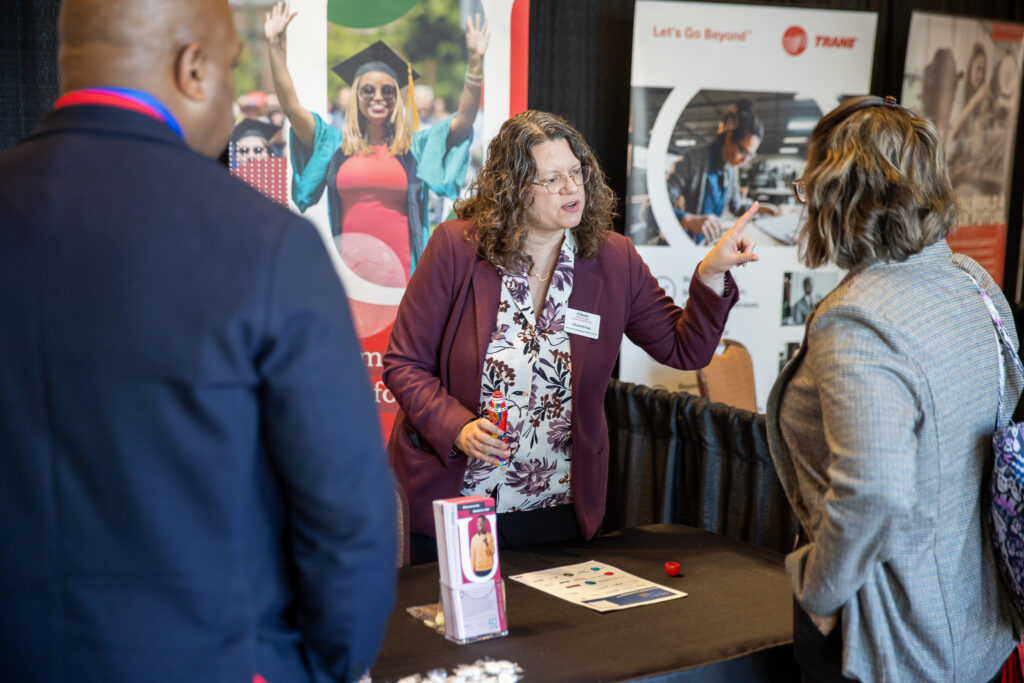WashU Continuing & Professional Studies (CAPS) is expanding what access to a world-class education looks like in Missouri. At the 61st Annual Missouri Community College Association (MCCA) Convention in St. Charles, CAPS leaders joined educators and administrators from across the state to explore how higher education can better serve today’s learners. As a proud sponsor of the convention, CAPS used the opportunity to connect with community college leaders and share how its flexible, fully online programs create clear, affordable pathways for students to complete a WashU degree without having to start over or leave home.
For Dean Sean Armstrong, that mission starts with access. “Promoting access is important,” he said. “There are a lot of students who are looking for opportunities outside the state but there are excellent options within Missouri. We’re one of them.”
The mission of CAPS is focused on serving today’s modern learners, students for whom education is one of many priorities. They’re often working professionals, parents or caregivers who are building their careers while pursuing personal and academic growth. “From what I’ve seen, community college students are a lot like our own,” Armstrong said. “They’re managing full lives and still finding ways to move forward in their education. For those who can’t relocate or pursue a traditional campus experience, CAPS offers a new opportunity.”
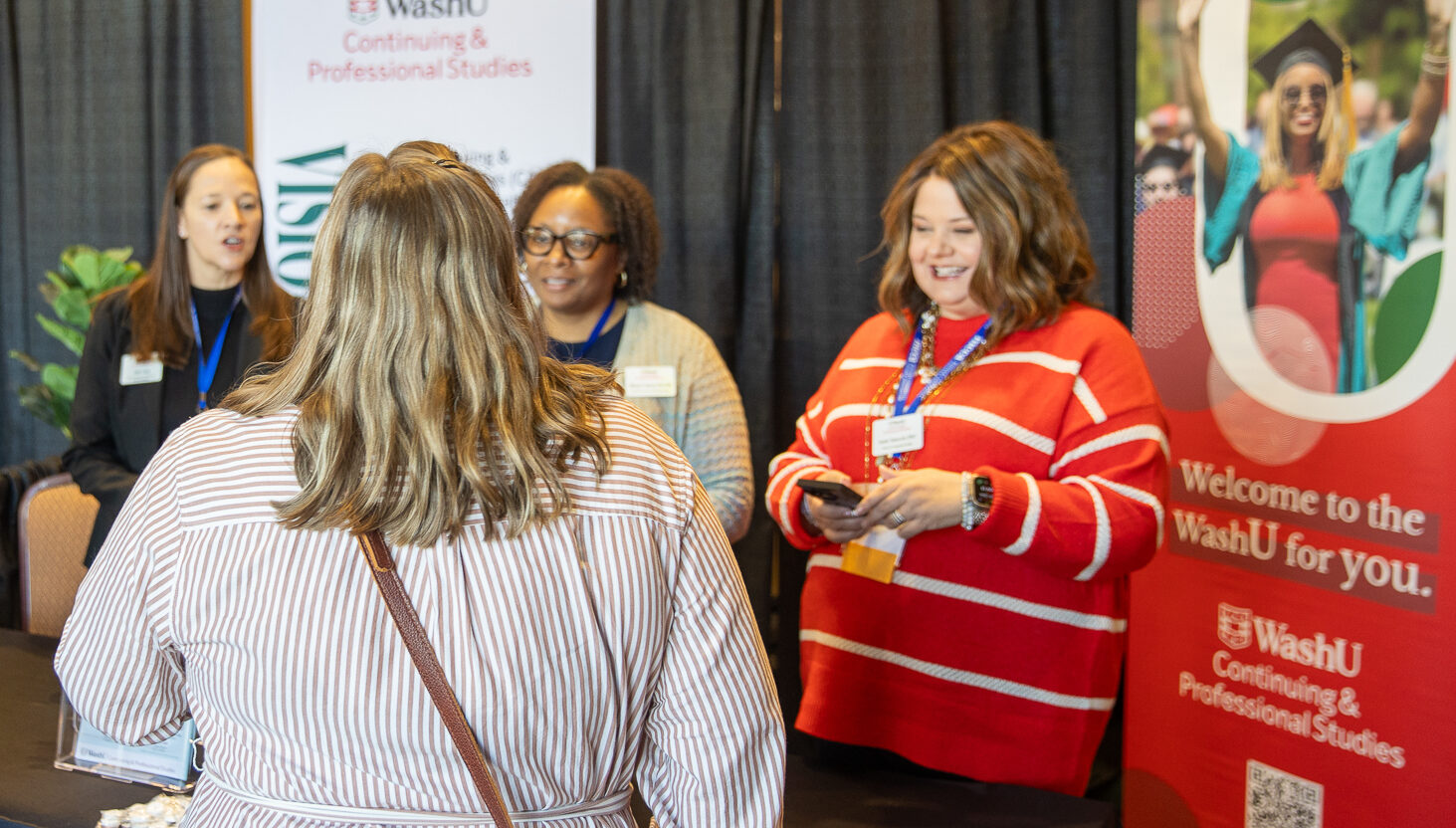
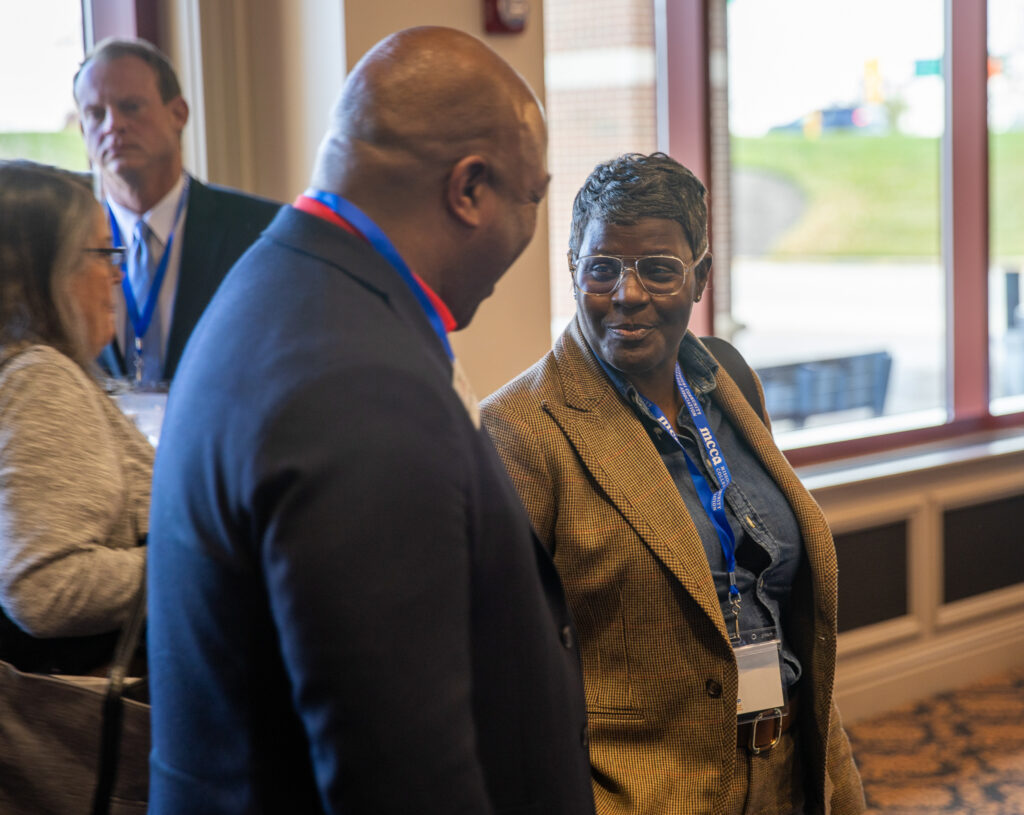
As a relatively new school at WashU, CAPS is still introducing itself to many prospective students who may not realize they now have access to flexible, transfer-friendly pathways designed specifically for working learners.
“Historically, the day school has not accepted many transfer students,” said Vice Dean Kilinyaa Cothran. “There are people who have always wanted to be part of WashU but because of location, cost or life circumstances, it just didn’t seem possible. CAPS changes that. It provides a framework that allows students to keep working, support their families and still earn a world-class education.”
That opportunity comes through the Bachelor of Science in Integrated Studies (BSIS), which accepts up to 66 transfer credits from accredited community colleges. Students can complete their degrees entirely online, choosing from concentrations in data, health, humanities and social sciences, and management. Each pathway is designed to connect classroom learning to career advancement in industries critical to Missouri’s regional economy.
Vice Dean Cothran said CAPS’ approach aligns closely with its mission. “We’re committed to creating opportunities for people who may not have traditionally had access to WashU but are absolutely capable,” she said. “Many community college students choose that path to stay close to home or reduce costs. By giving them a way to complete their degree with us, we stay true to our mission.”
Cothran added that the value of a WashU education goes far beyond coursework. “There are opportunities at WashU that exist because of the kind of institution it is, its reputation, mentorship, internships and alumni network. Those connections open doors beyond the degree itself,” she said.
With most CAPS programs offered online, the school reaches learners well beyond the St. Louis metro area. “Even being 90 minutes from campus can make in-person learning difficult,” Cothran noted. “CAPS was built to engage those students where they are and to connect them to the WashU network.”
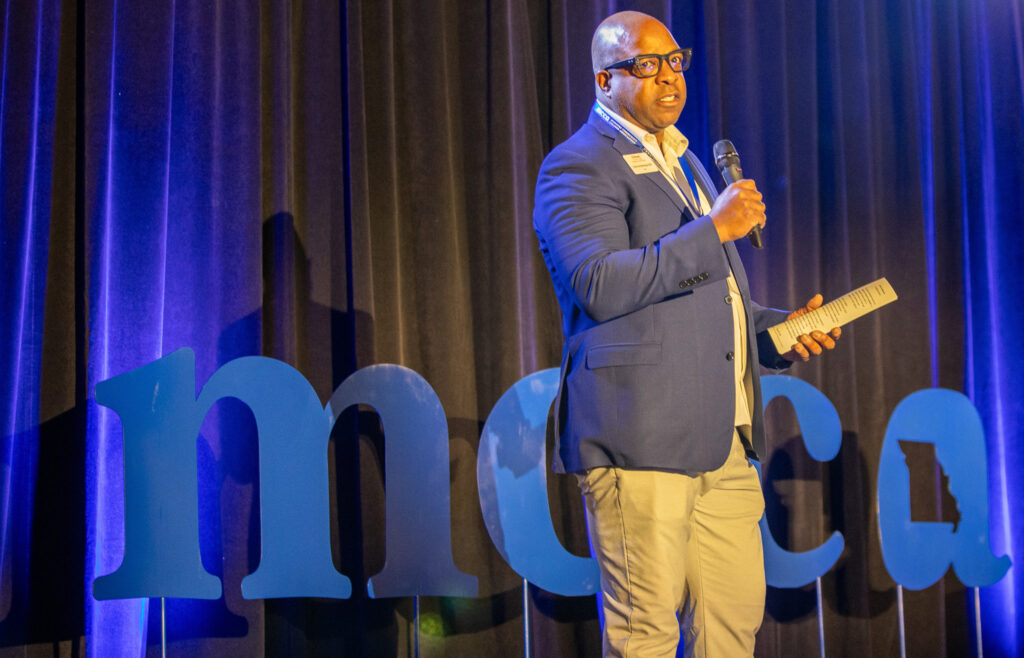
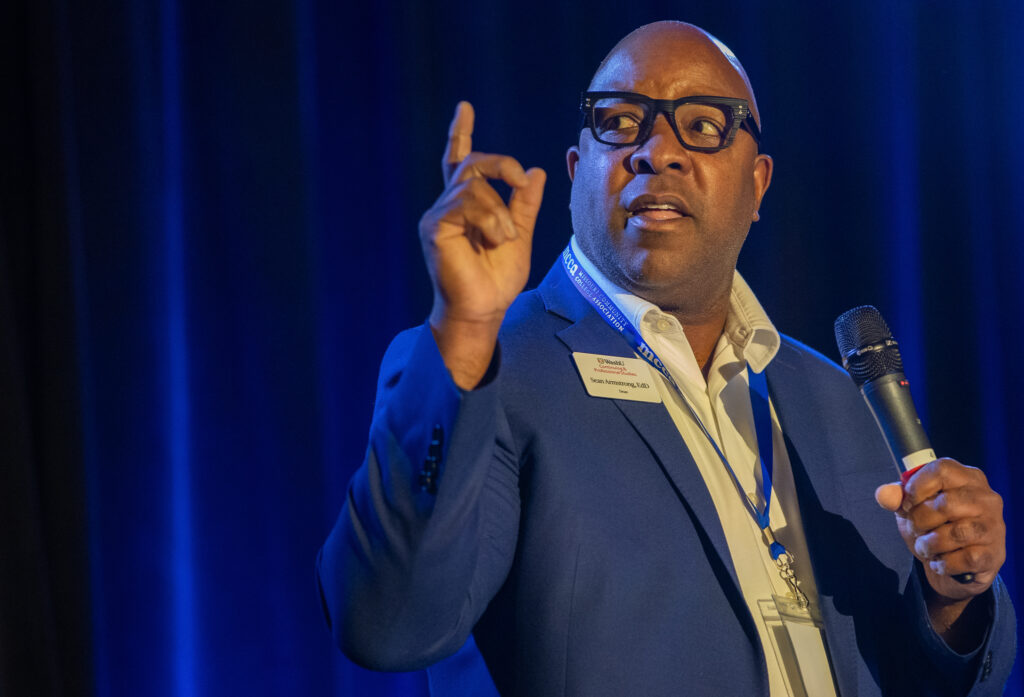
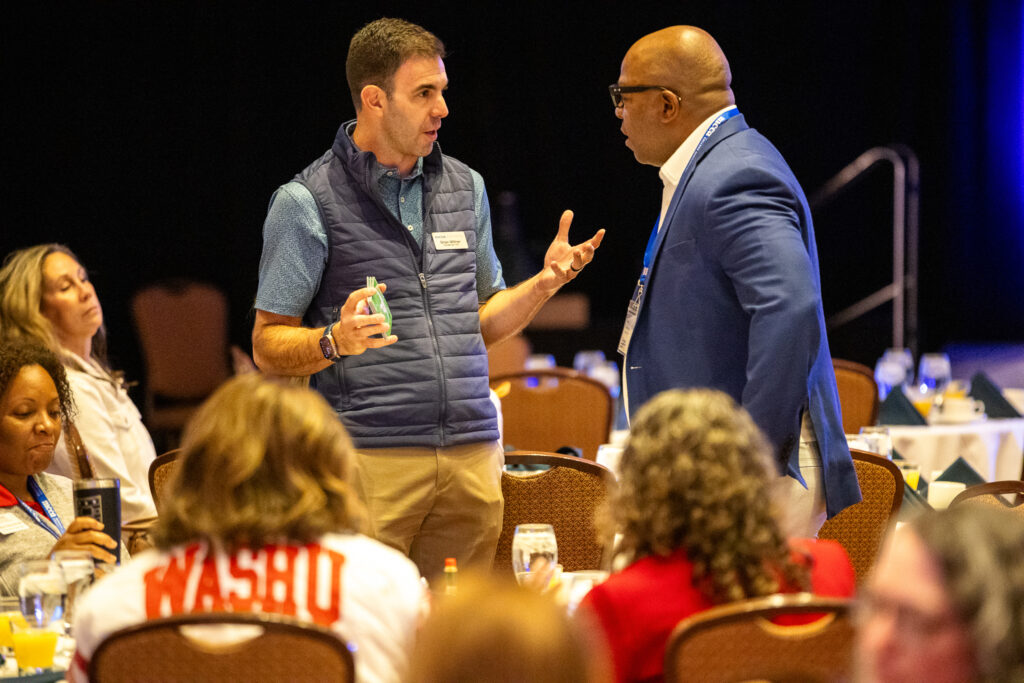
Armstrong agreed, noting that the conversations started at MCCA are an important step in making higher education more responsive to Missouri’s workforce and communities. “I believe every university should have a relationship with community colleges,” he said. “That’s where the conversation about access and opportunity begins.”
For Missouri’s modern learners, those balancing work, family and ambition, CAPS offers more than an education. It’s a bridge between potential and possibility.
